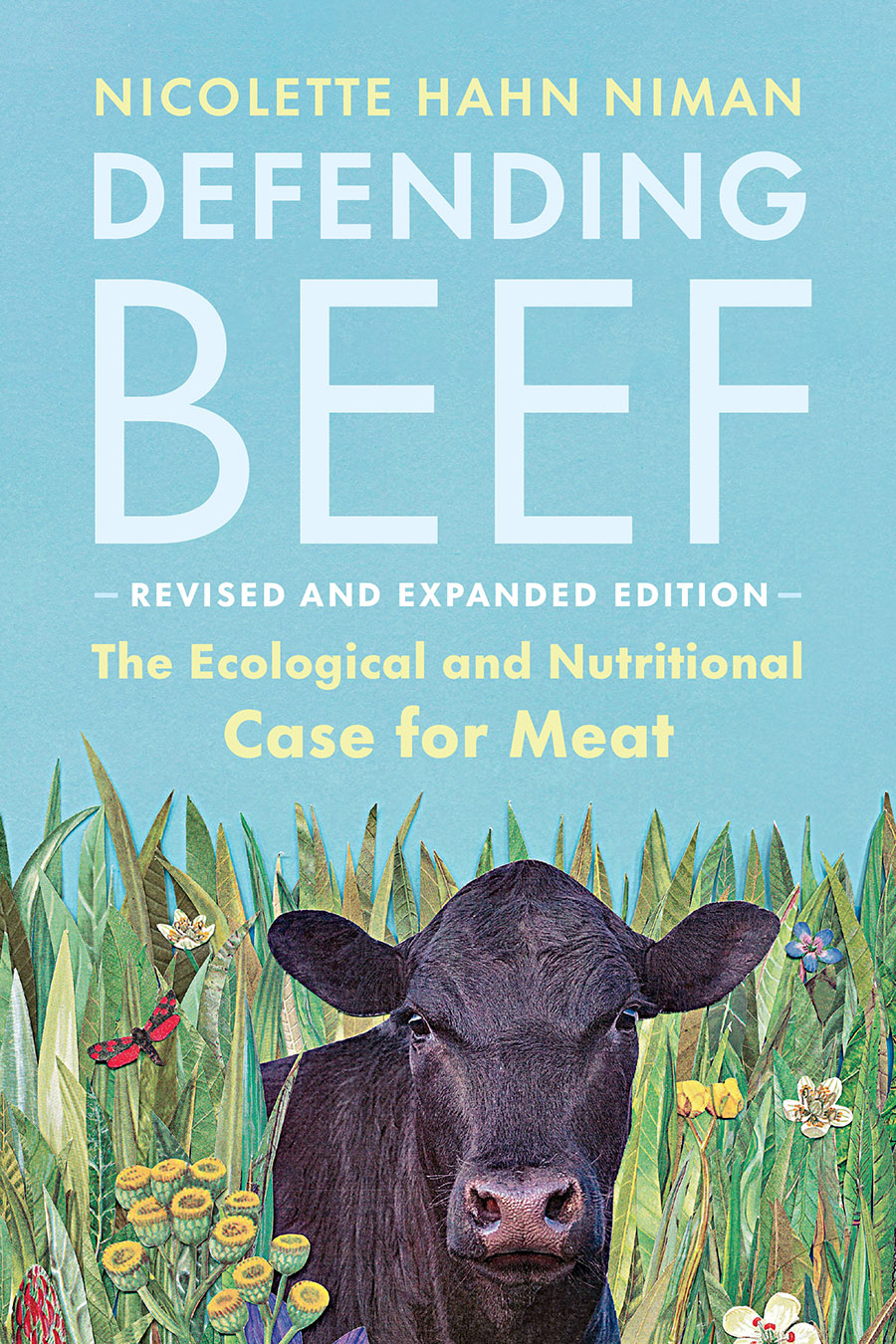I’m on the visionary panel. To register, click here.

Nicolette Hahn Niman. Defending Beef: The Ecological and Nutritional Case for Meat (revized and expanded second edition). Chelsea Green, 2021.

This is an updated edition of Hahn Niman’s 2014 book, which I wrote about in October that year. Then, it was titled Defending Beef: The Case for Sustainable Meat Production.
I did a blurb for the book when it first came out and it still holds for this new edition:
Issues related to the long-term health effects of red meat, saturated fat, sugar, and grains are complex and I see the jury as still out on many of them. While waiting for the science to be resolved, Hahn Niman’s book is well worth reading for its forceful defense of the role of ruminant animals in sustainable food systems.
In my 2014 post, I said:
The subtitle says it all: “The Manifesto of an Environmental Lawyer and Vegetarian Turned Cattle Rancher.”
Really?
Really. She’s not kidding.
As [my blurb] might suggest, I have a more cautious interpretation of the science she summarizes, but there are plenty of reasons why eating meat can help improve human nutrition, especially when the animals are raised as humanely and sustainably as possible, which the Nimans most definitely do on their beautiful Bolinas ranch. [Photos are here]
Vegetarians: does she convince you?
Let the debates begin.
Well, 7 years later the new edition focuses much more on arguments about the effects of beef production on climate change and whether plant-based meat alternatives are worth the trouble.
The big news: Hahn Niman is no longer a vegetarian.
I may once have believed that if I followed a vegetarian diet, nothing would have to die for my meals. I now see how wrong I was…My primary mission these past two decades has been helping, in whatever ways I can, build a more environmentally sound, nourishing and humane food system. We have a long way to go. I don’t urge people to eat meat. But I certainly don’t urge refraining from it, either. I encourage omnivorous eaters to seek well-raised meat. Abandoning meat will not positively affect the food system and may diminish one’s health. The greatest consumer impact will come from people who eat meat actually buying it from good sources. (p.244)
I am with her on all of that.
That meat has nutritional and ecological benefits is beyond dispute. This books lays out her point of view about the reasons for these benefits in an especially thoughtful way that carefully considers the counter-arguments.
Whether you agree with her views or not, this is the book to read about these issues.